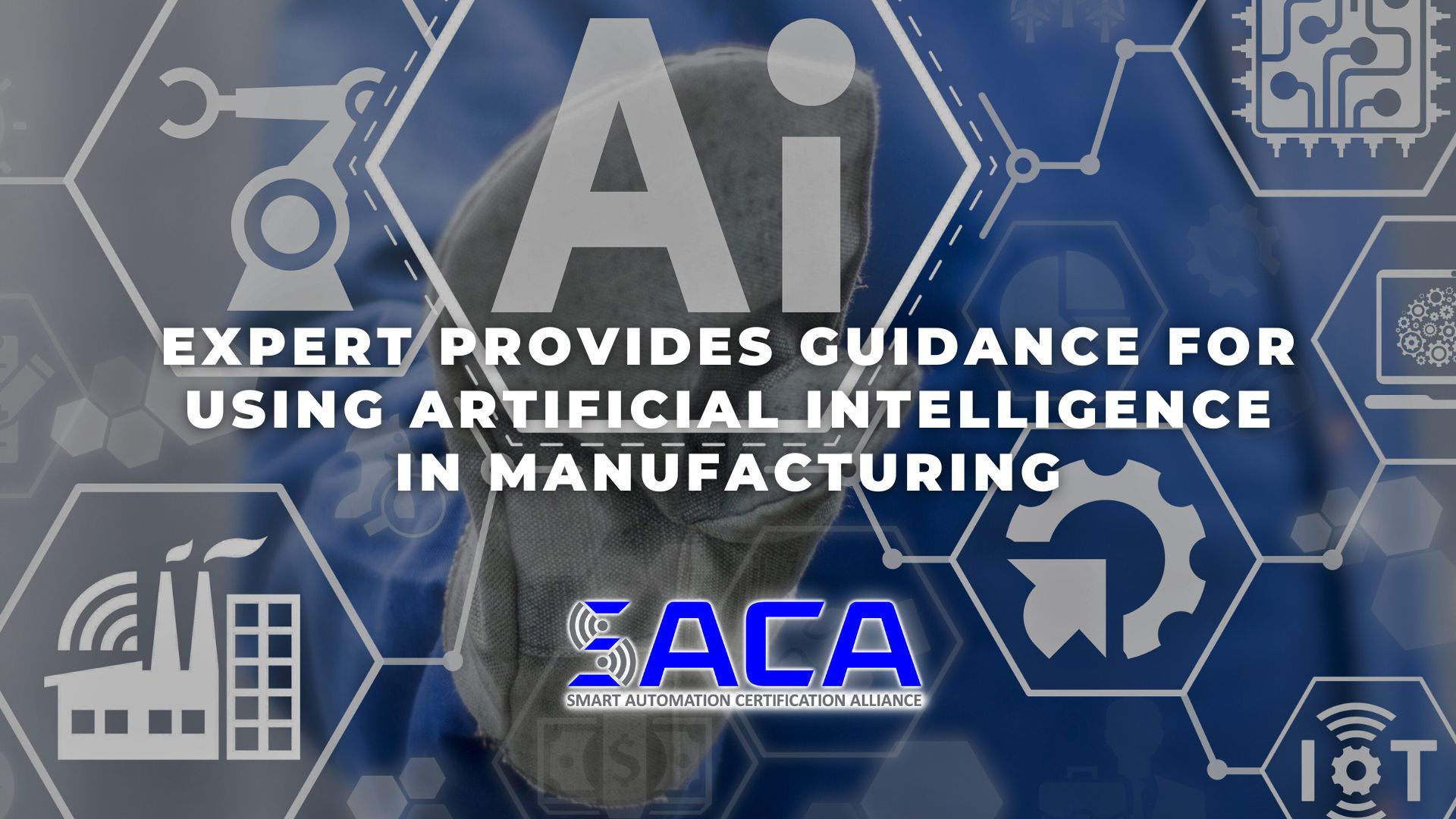Cybersecurity a Top Concern for Auto Manufacturers
If you were an automotive executive today, what do you think your primary concern might be? Improving safety is always an important concern. Given rising inflation, making vehicles more affordable might also be high on the list. Of course, many of you might also identify navigating the rise of electric vehicles (EVs) as a likely contender.
While those are all good guesses, there’s one issue that Rockwell Automation’s latest State of Smart Manufacturing: Automotive Edition report identified as the primary barrier for growth according to auto manufacturers: cybersecurity. If you think about it, it just makes sense.
Manufacturers everywhere—including auto manufacturers—have embraced new automation technologies because they improve productivity, efficiency, and ultimately profitability. However, as manufacturers add more and more smart devices to their networks, the risk of cyberattacks on those devices increases accordingly.
The bad actors behind the cyberattacks that have made the news in the last few years know that manufacturers often implement new technologies before adding the highly skilled workers they need to keep those advanced systems safe. Auto executives must ask themselves: how safe are our plants from cyberattacks?
Moreover, automobiles themselves have become marvels of the latest modern technologies. From Wi-Fi-enabled vehicles to dashboards that sport screens the size of small televisions, the cars and trucks we drive are “smarter” than ever. And let’s not forget about the next frontier: self-driving vehicles. The earliest models are already on our roads. What happens when they become the norm?
We have a high-tech system of air traffic control that keeps track of all the airplanes in the sky to make sure none of them cross paths. Will we see the same type of system for self-driving automobiles? Can you imagine the technology that will take to keep track of millions of vehicles to ensure they all stay in their lanes? More importantly, can you imagine what would happen if a hacker gained control of such a system, let alone individual vehicles?
These are just a few of the factors that led auto manufacturers to put the spotlight on cybersecurity as the main barrier to continued growth. In a recent Industry Week article, author Dennis Scimeca points out that “[t]he manufacturing sector…presents one of cybercriminals’ most attractive and lucrative targets.”
This is certainly true for auto manufacturers who tend to have a “lack of tolerance for pauses in production and therefore increased willingness compared to other economic sectors to pay ransom demands.” Cyberattacks on Nissan, Ferrari, and Hyundai in the last year have boosted cybersecurity to the top of the pile when it comes to future worries.
Scimeca believes “[t]he increasing connectivity between vehicles provides the largest concern for auto manufacturers.” For example, Brian Denken, Rockwell Automation’s commercial manager for networks and cybersecurity services, North America, notes that “[w]e’re looking at multiple types of connectivity—vehicle-to-cloud for services like navigation, vehicle-to-infrastructure for traffic management and vehicle-to-vehicle for safety communications. Each connection point expands the attack surface and presents unique security challenges that we must address to ensure safe and reliable vehicle operations.”
Cybercriminals also like the automotive industry as a target for the huge amount of data available. Denken points out “[t]his includes personal data from drivers, operational data from vehicle systems, communication data exchanged with external entities and charging data for electric vehicles.”
Denken argues that “[e]nsuring the security of this information is vital to prevent fraud, maintain vehicle performance and safeguard user privacy. This requires advanced encryption, secure communication protocols, and continuous monitoring.”
Scimeca reminds readers that “[f]ocusing too much on the specifics of vehicle connectivity risks losing track of the degree to which automotive plants, some of the most networked plants in heavy industry, also face increasing cybersecurity risks.”
So what’s a vulnerable auto manufacturer to do? Experts agree that it’s critical for manufacturers to hire highly skilled workers that can manage cybersecurity risks, in addition to operating, maintaining, troubleshooting, and repairing the advanced automation systems that are being implemented. Unfortunately, due to the ongoing “skills gap” issue in the manufacturing sector, finding highly skilled workers remains a significant challenge.
How can manufacturers find the workers they need? And how can they be sure that workers have the hands-on skills they need to succeed in the modern workplace? Today, more and more manufacturers are looking for workers with industry-standard certifications that prove they have the skills employers need.
For example, if workers possess a certification from the Smart Automation Certification Alliance (SACA), employers can feel confident they’ve already proven they have the knowledge and hands-on skills needed for working with advanced smart automation technologies. SACA has been hard at work collaborating with industry leaders to develop a wide variety of industry-standard certifications that will help employers find workers who possess the advanced connected-systems skills they need to take their businesses to the next level. Be sure to check out SACA and all it has to offer!
Can AI Help Bridge the Manufacturing Skills Gap?
Unless you’ve been living under a rock over the course of the past year, then you’ve definitely heard of—and possibly even used—generative artificial intelligence (AI), such as ChatGPT. AI has really taken off over the past year or more, and it’s easy to see how useful it can be in areas like software programming and marketing.
But what about manufacturing? With an ongoing skills gap making the manufacturing labor market especially tight, manufacturers are searching for any way to increase productivity and efficiency. Could AI be a solution to their problems?
Those familiar with manufacturing already know that change usually happens incrementally. That’s a polite word for slowly, by the way. AI, however, is a technology associated with exponential, rapid change. Does such technology have a place in the world of manufacturing?
In a recent Chief Executive article, author Dan Bigman details his conversations with Pavan Muzumdar, chief operating officer of Automation Alley, Michigan’s Industry 4.0 knowledge center. According to Muzumdar, generative AI, like ChatGPT, can have a positive impact in manufacturing, if it’s implemented in the right way for the right reasons.
For example, Muzumdar recommends manufacturers “use gen AI to get started on something, use gen AI for ideation, use gen AI to kind of get you a little bit further ahead. But don’t use gen AI for completion.”
Muzumdar also advises that manufacturers “[b]e very cautious in using gen AI for factual information…whatever you ask AI to do, ask it so that the output that you get is in a chunk that you can independently verify. You can get great value, but make sure that you’re doing this ‘trust but verify’ type of approach.”
One successful application many manufacturers have found for AI is helping with old technologies. Many new manufacturing hires don’t know older programming languages, like COBOL, that might still be used in legacy systems. Generative AI can help new programmers decipher old code and write new code in languages they’re not familiar with.
Likewise, generative AI can help a new worker who understands general programming but not, for example, something specific to manufacturing, like CNC programming. According to Muzumdar, these workers “can kind of inductively learn how to do CNC programming just with the help of gen AI. But again, don’t trust it fully; learn how to use it and then verify that by making sure that you’re actually doing some physical tests to see that it’s actually giving you the results.”
Bigman believes that manufacturers should remember that “a gen AI like ChatGPT has digested almost every user’s manual and how-to guide, best practice guide on almost every machine that’s sitting on your shop floor.” Even if it can’t solve every one of your problems, it can accelerate understanding and speed along the process.
Muzumdar agrees, reminding that “[i]t’s not AI, it’s human plus AI. How can I empower my own staff to be much more open about it, knowing that it has limitations, but even things with limitations can have substantial value in making us much more productive.”
Even if AI does not replace workers, the workers of today and tomorrow will need to learn new skills to keep pace with the advanced technologies being implemented in the modern workplace. That’s why manufacturers are increasingly looking to hire highly skilled workers that can operate, maintain, troubleshoot, and repair advanced automation systems.
Unfortunately, due to the ongoing “skills gap” facing industries across the country, finding highly skilled workers remains a significant challenge. How can employers be sure that workers have the hands-on skills they need to succeed in the modern workplace? Today, more and more employers are looking for workers with industry-standard certifications that prove they have the skills needed.
For example, if workers possess a certification from the Smart Automation Certification Alliance (SACA), employers can feel confident they’ve already proven they have the knowledge and hands-on skills needed for working with advanced smart automation technologies. SACA has been hard at work collaborating with industry leaders to develop a wide variety of industry-standard certifications that will help employers find workers who possess the advanced connected-systems skills they need to take their businesses to the next level. Be sure to check out SACA and all it has to offer!
- Published in News, Posts, Technology




